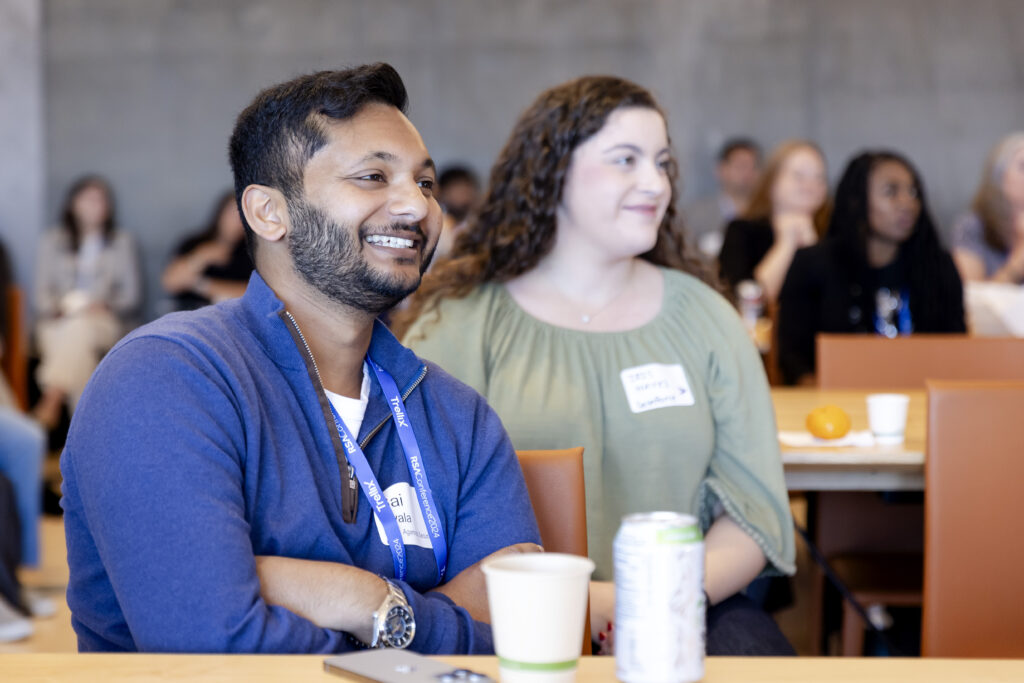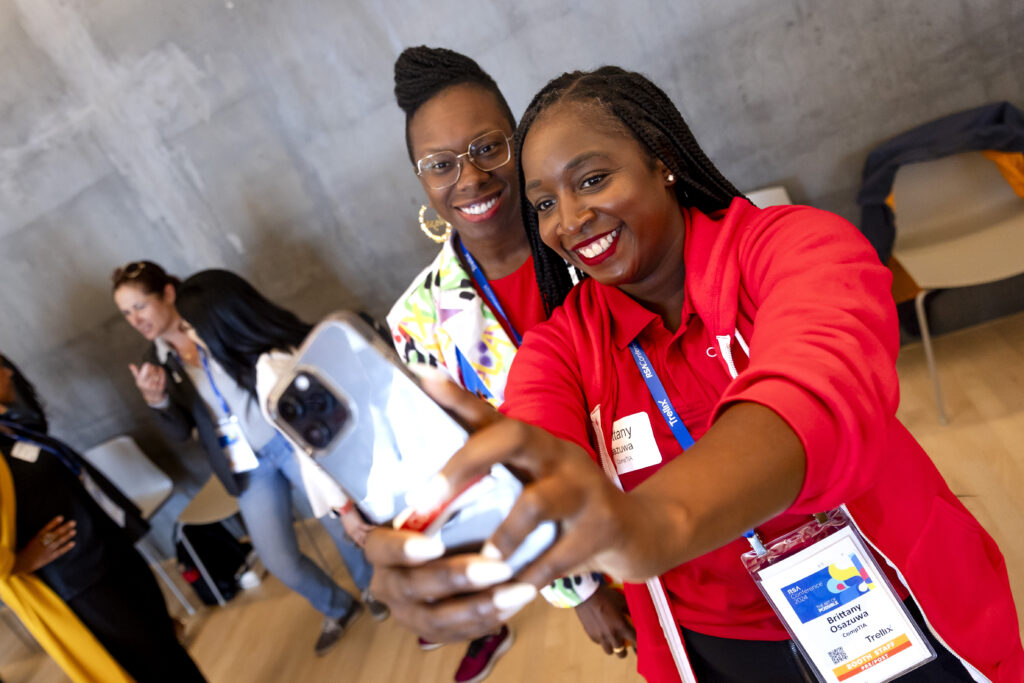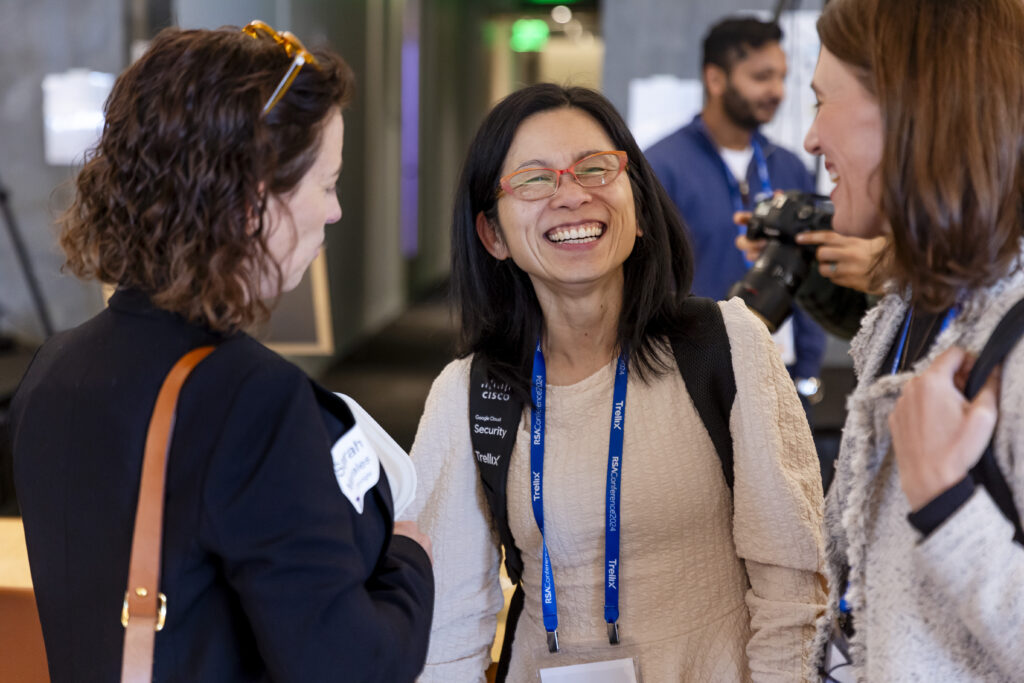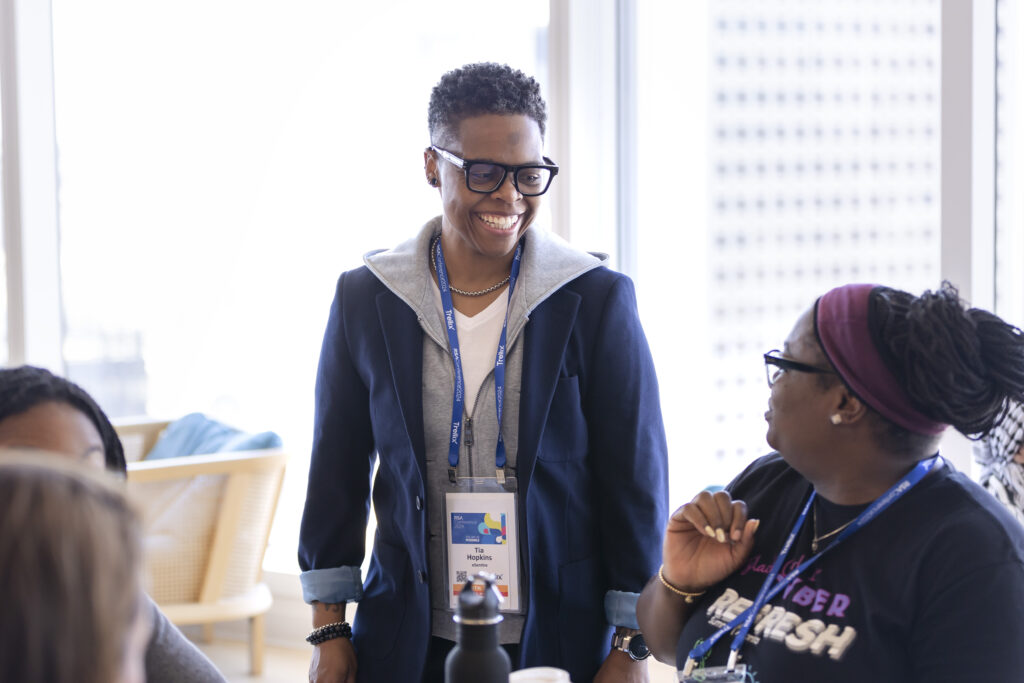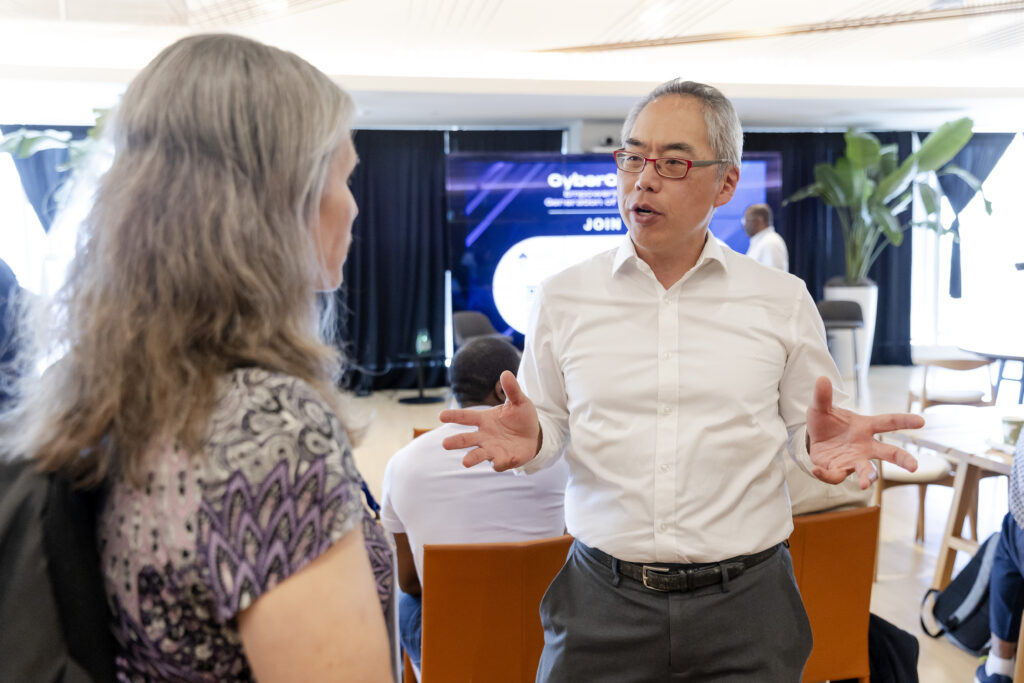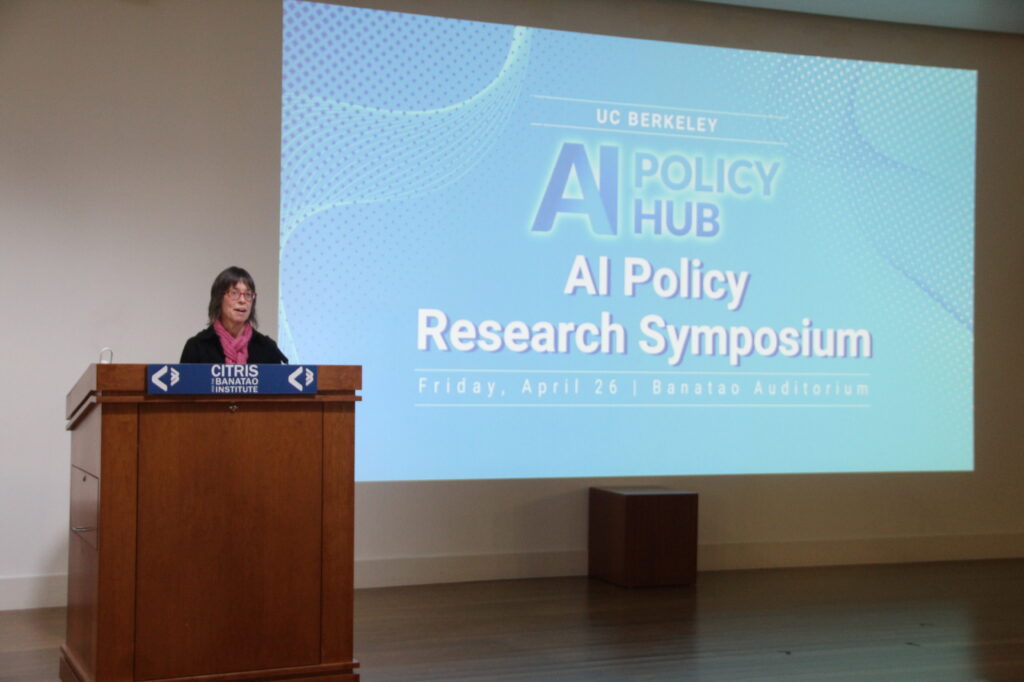On May 8, 2024, the Center for Long-Term Cybersecurity co-hosted “CyberCatalysts: Empowering the Next Generation of Cyber Leaders,” an event presented alongside Cyversity and Women in CyberSecurity (WiCyS), with the generous support of Accenture and Salesforce. Held in conjunction with RSA Conference, this event featured conversations from seasoned cybersecurity professionals and the next generation of cybersecurity talent, with an eye toward shaping a more inclusive cyber future.
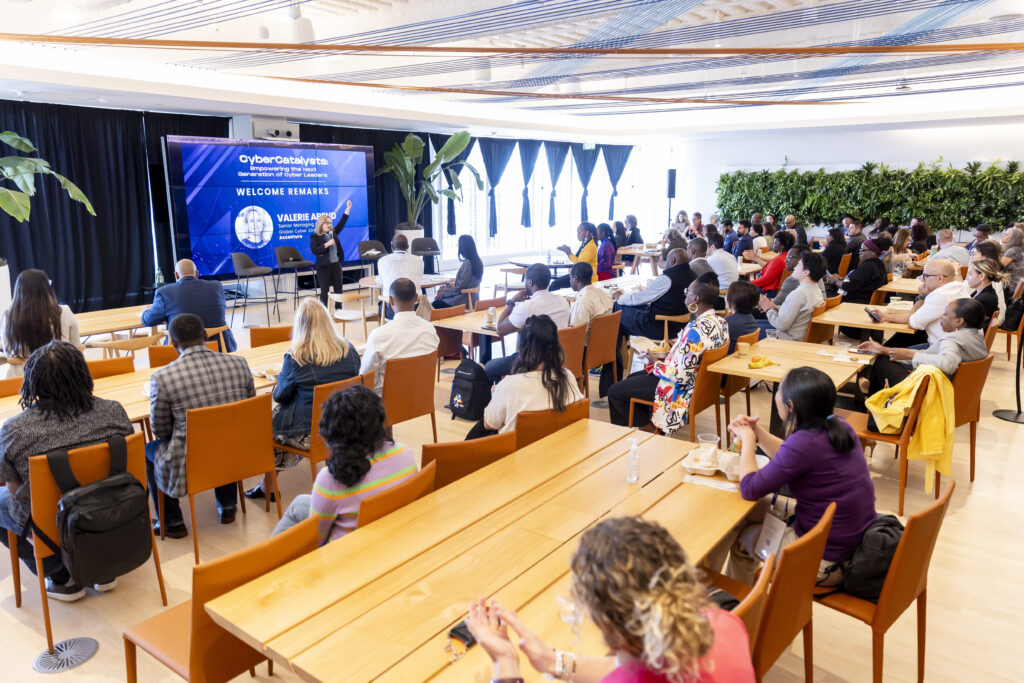
“It is only going to get harder to protect each other and society, and that cannot be done without diversity,” said Valerie Abend, Global Cyber Strategy Lead for Accenture Security, while introducing the event. “What we need are new people with new ideas and new ways of thinking. And that does not come unless you have different backgrounds and different ways of challenging each other.”
Hakeem Oseni, Senior Product Manager, Detection and Response at Salesforce, spoke about the importance of networking as a means of growing diversity in the cybersecurity field. A member of the Bay Area leadership team of Cyversity, a non-profit that helps and supports women and BIPOC (Black and Indigenous People of Color) in cybersecurity, Oseni encouraged members of the audience to take the opportunity to connect. “This is all about you,” he said. “I want everyone to meet five people you don’t know, link-in with five people you don’t know, follow five people you don’t know, and talk to people you don’t know, because together we make diversity stronger.”
“Next Gen” Panel
The first panel of the event featured young professionals who work in different domains related to cybersecurity, future leaders with past ties to CLTC, Cyversity, or WiCyS. Moderated by CLTC Executive Director Ann Cleaveland, the panel included Francisco Laplace, a software engineer who works with Cyversity to bring awareness about the importance of cybersecurity to underrepresented minorities, with a focus on the Latinx community; Kira Luin, an information security analyst for the Greater Nevada Credit Union who was invited by WiCyS to be a RSA Security Scholar; and Joanne Ma, a designer and researcher who works on emerging technologies in trust and safety in augmented reality. Ma was previously a CLTC grantee, a student at the UC Berkeley School of Information, a participant in the Citizen Clinic course, and a graduate student researcher at the Daylight Security Research Lab.
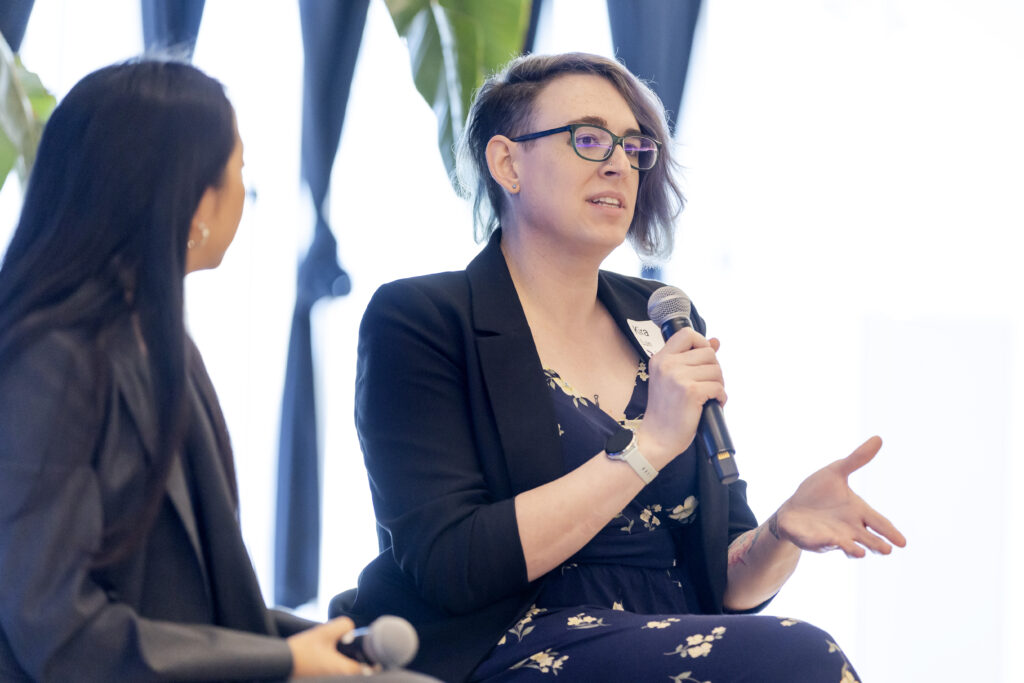
Luin explained that she joined the cybersecurity field after taking a break from her job at a biopharmaceutical company. “WiCyS is the reason that I was able to make that career change, and it gave me the opportunities to attend the SANS Women’s Immersion Academy,” Luin said. “There are a multitude of different scholarships from WiCyS that I was able to earn…. I’m here now because of them.”
Luin stressed the importance for young professionals of joining different communities of interest. “We live in this dynamic now where there’s a Discord server for everything,” she said. “It’s getting easier to go out there and find your community. And once you find them, they can help lead you into this world through any kind of lens, from the smaller, more local lens to the larger global lens. I’m just really excited that we live in an age where it is becoming easier and easier for people to find their community and be a part of them.”
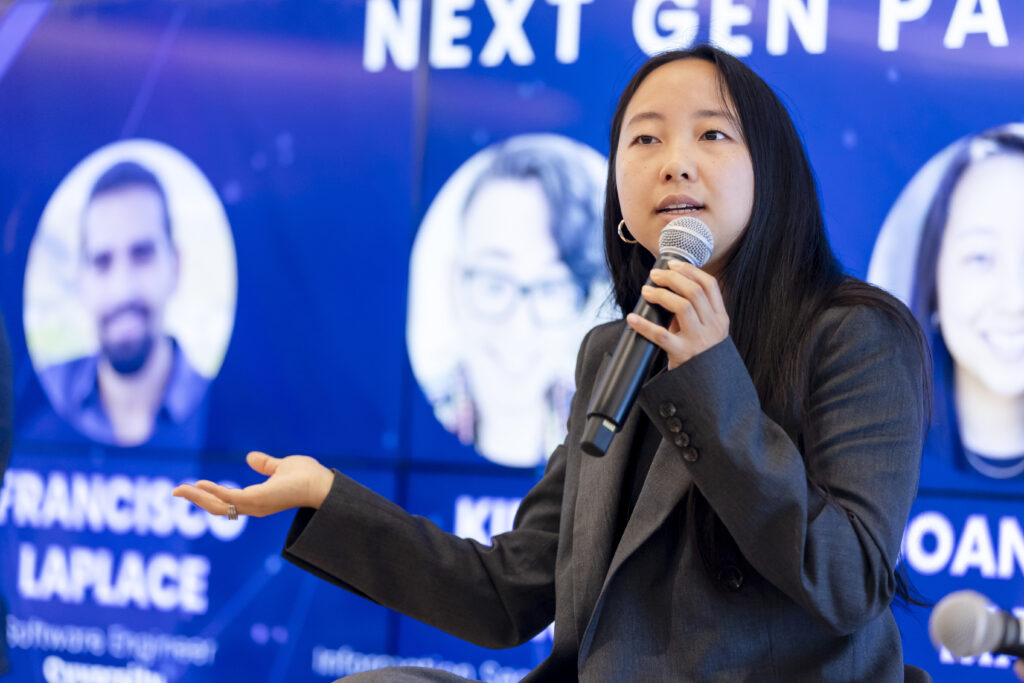
Joanne Ma explained that her career path was shaped by her exposure to programs at UC Berkeley. “I got to do all sorts of things related to thinking about how marginalized people use technologies, and about really difficult questions around surveillance, but also about designing for a broader range of people that may not comport with how industry does things,” Ma explained. She noted that she connected with CLTC in part because it was “really interested and keen on expanding what we think cyber is, to actually be in line with our values or thinking about how we design for safety and security.”
Ma noted that young professionals entering the field should be open to exploring new domains. “People should be willing and open to taking risks and doing things that they’re not really thinking that they can do,” Ma said. “Cyber often has an affiliation with’ cyber war,’ or security studies. But part of the work that CLTC has been doing has expanded this and includes thinking about generally, how do we keep people safe?”
Laplace explained that he moved to the Bay Area three years ago and used networking as a pathway into his career. “One of the great things that I’ve learned in Cyversity was networking with people,” Laplace said. “Go out there, meet people, and introduce yourself…. Try to shake hands. Get to meet more people around the industry, familiarize yourself with different fields…. Cyber is a very big, broad field. It’s an umbrella term. I’ve met people from different backgrounds, from law to business to policy compliance, and more technical folks.”
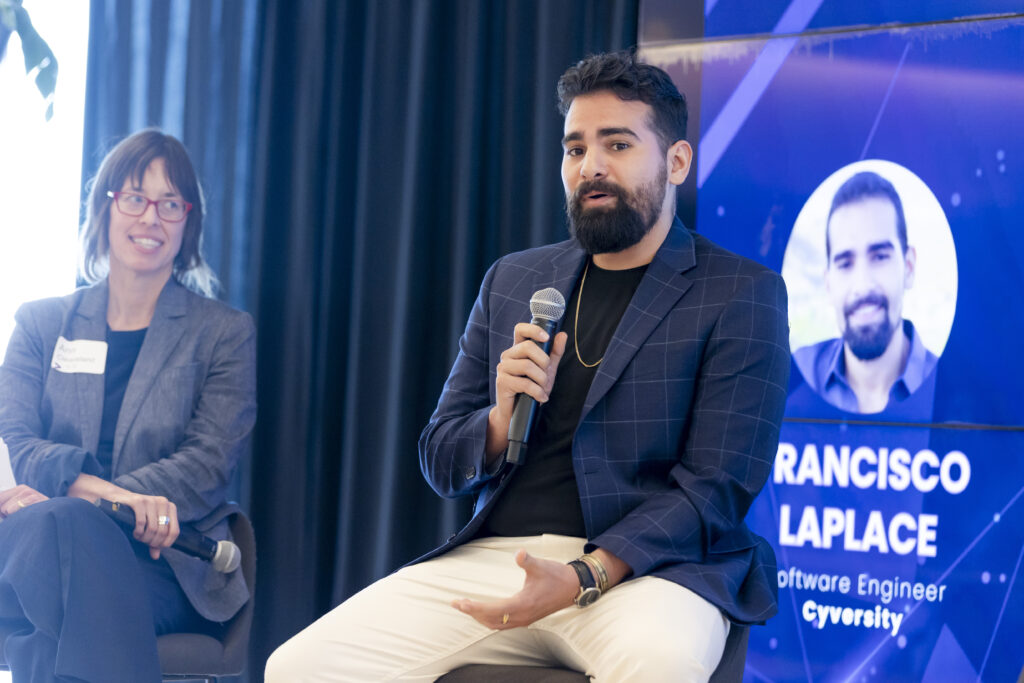
Laplace said that it is imperative to push back against the forces that keep diversity out of the field. “If you see gatekeeping happening, try to fight against it,” Laplace said. “Diversity leads to innovation. Oftentimes, teams benefit a lot from having people from different backgrounds…. Try to bring in the idea of collaborating with different types of teams, bringing more diversity into your work. Being able to provide resources to people who otherwise don’t have those resources or guidance would really benefit the community and the industry as a whole.”
Industry Panel
The second panel featured a discussion led by M.K. Palmore, Director of the Office of the CISO at Google Cloud and President of Cyversity. The panel featured a conversation with three experienced professionals — Dr. Dédé Tetsubayashi, founder and CEO of Incluu, a tech equity and ethics consultancy; Kelly McCracken, Senior Vice President, Detection & Response at Salesforce, and Bobby Ford, Senior Vice President and Chief Security Officer at Hewlett Packard Enterprise.
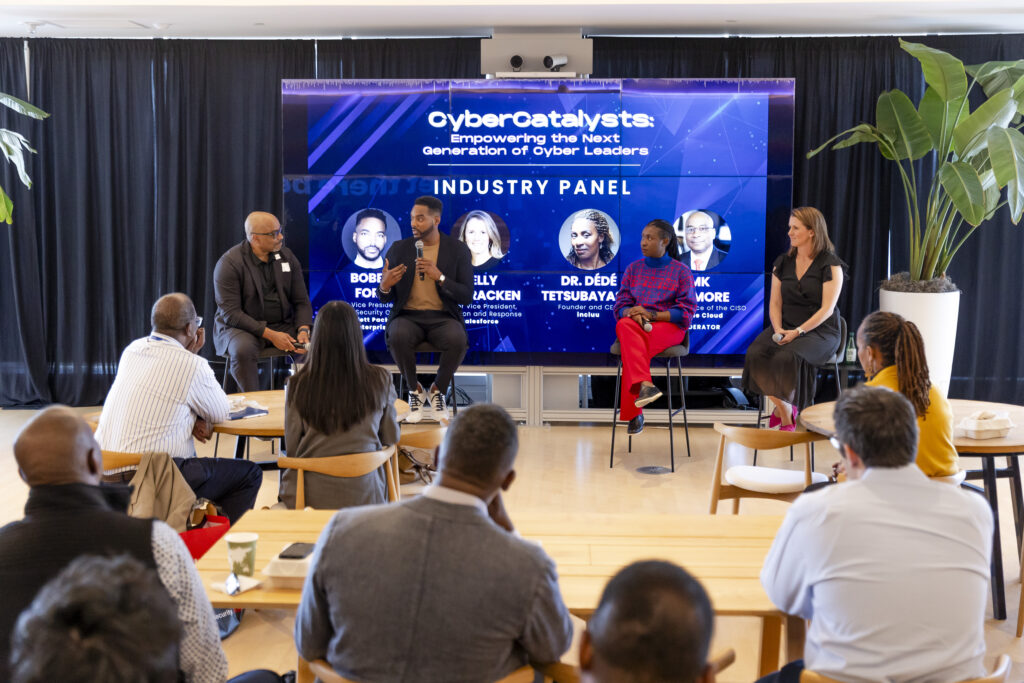
“We’re going to try and bridge the conversation that just occurred and make this about what’s needed for the next generation, but also what folks who have spent time in the industry have seen,” Palmore said.
Dr. Tetsubayashi explained that diversity is particularly important to her because she is a “transracial adoptee from West Africa” and “a Black, queer woman in a male-dominated industry.” She explained that her organization, Incluu, focuses on “helping organizations that are developing products that are based on machine learning, AI, or any other biometrics identification software to develop that with the people on the margins, which is completely turning the process on its head.”
“The reason that I originally founded Incluu was within the last 20 years of my work in corporate, I continuously came up against developing products in a manner that didn’t see me, didn’t include me, and didn’t include folks that were historically underserved, and folks that are on the margins,” Tetsubayashi said. “Research shows that when we focus on the people on the margins, the 20% of people who historically don’t have access or are underserved, we actually reach closer to 100% of our communities. This work not only results in equitable outcomes with safety, security, privacy, and compliance first, integrated into the product development. It also helps those organizations unlock millions of dollars.”
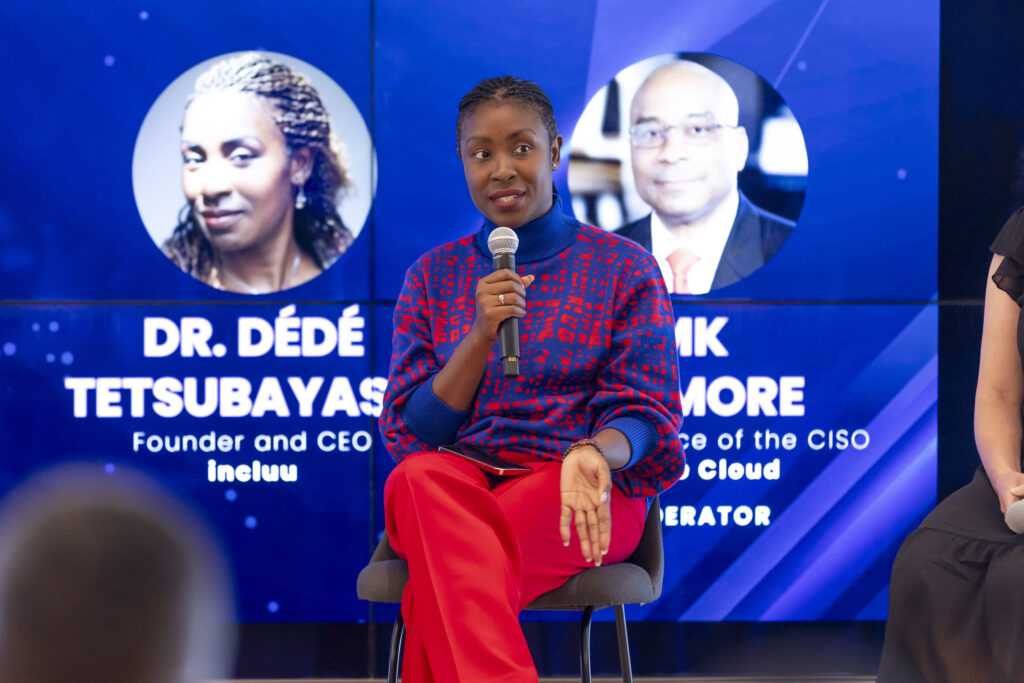
Tetsubayashi said that starting her own business allowed her to forge a career path with fewer obstacles. “When success doesn’t come calling, you make your own chair and your own damn table,” Tetsubayashi said. “You make your own company, and the people will come. If you are true to yourself, if you are true to your values, and you’re true to what it is that you’re trying to achieve, you’ll figure out a way to get it done.”
Salesforce’s Kelly McCracken explained that she decided 15 years ago to focus on volunteering to bring more women into cybersecurity, including by working with Women in Technology, a nonprofit organization dedicated to support the development of women in tech-related industries, and helping kids compete in the Air Force Association’s CyberPatriot program. “We were able to get all-girls teams free admission into the national CyberPatriot program competition,” McCracken said. “We’ve been helping to increase the number of girls getting into cybersecurity, and making them realize that they’re not alone. So this is a really passionate topic for me.”
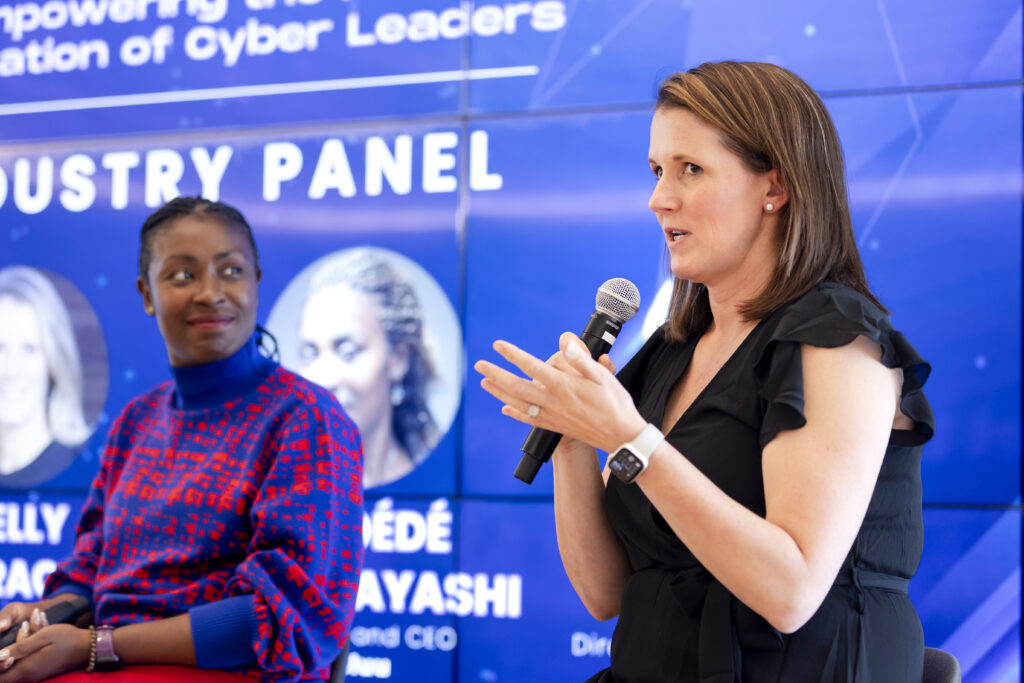
McCracken said that companies need to do more to support professionals in the early stages of their careers. “At the executive level, we need to be better allies,” McCracken said. “Oftentimes, we sit at the executive level and don’t open up to members of the team that are more entry-level, who are trying to grow their careers. They feel like they don’t have access…. You have to build that trust. You have to build the transparency. You have to build the relationships and nurture those relationships at all levels, because this is the only way that we’re going to continue to help bring the diversity into cybersecurity.”
Bobby Ford agreed with McCracken that “you have to be your own ally,” but noted that “it’s all about opportunity. Unfortunately, some of us just won’t receive opportunities…. The successful are those who, when gifted with an opportunity, have the presence of mind to recognize them and then the strength to capitalize on them.”
Ford stressed that it is important to be a role model for others, explaining that you have to “play the game until you get to a level where you feel comfortable. And then, once you get to that level where you feel comfortable, you lean into it, and then you get other cats that feel like, hey, I can lean into it as well.”
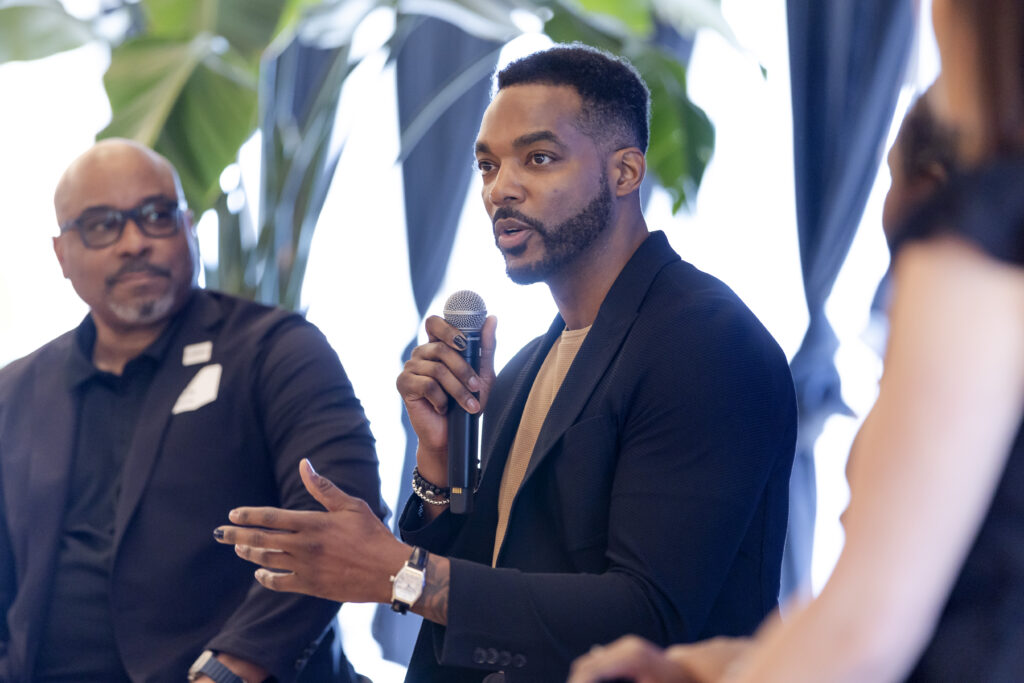
He also said that it is important to find what interests other people, particularly organizational leaders, and finding ways to connect with them. “Figure out what they really do care about, and then how does it impact them, and we have to align what we want,” Ford said. “I don’t want to make it seem like it’s adversarial, because it’s not adversarial, but you really have to figure out what they want.”
“We’ve got to invite [senior leaders to this conversation,” Ford said. “If you look around this room, there’s a demographic that’s noticeably small. And until we can increase that demographic into rooms like this, into conversations like this, I don’t think we’ll be effective, because we’re asking marginalized, excluded people to come up with the solution for how they can be included in a room that they’re not in.”

